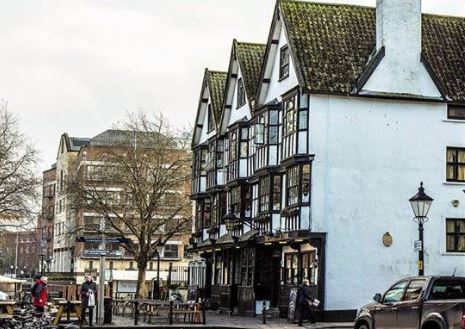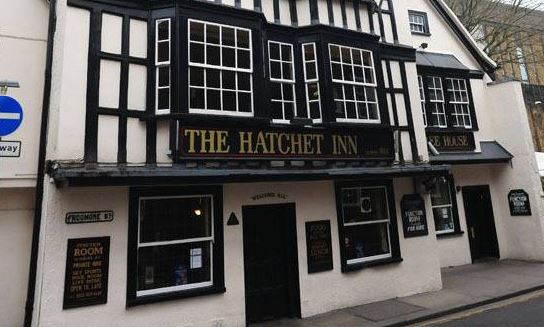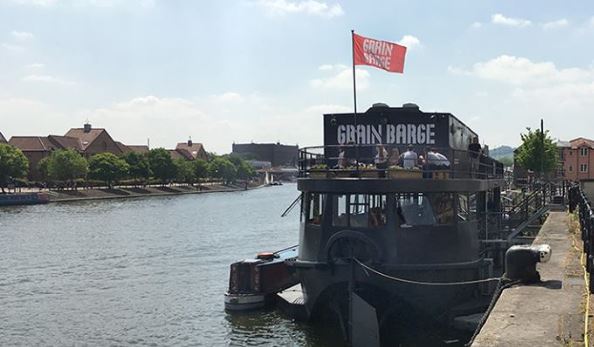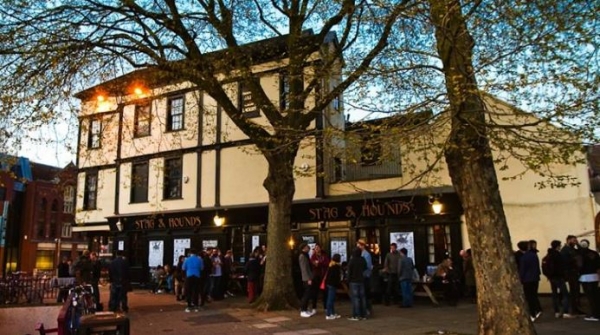
The Weird and Wonderful History of 9 of Bristol's Oldest Pubs
Posted on: 19 Jan 2018Unquestionably, Bristol boasts an enviously impressive range of iconic buildings and historical landmarks. SS Great Britain, Clifton Suspension Bridge, Bristol Cathedral, Wills Memorial Building, the cobbled, wonky wonders of the Old City, and the watery, picturesque locale of the Harbourside, to name but six.
Tucked snugly in amongst this panoply of panoramic delights, however, is an equally monumental range of old pubs - proper pubs - with an interesting, illuminating and often dark past. Forget your trendy wine bars or flavour of the month micros, we're talking real boozers packed with real character (and often characters), fine ales and brimming with thrilling nuggets of historical interest. So grab yourself a beer, whet your whistle, and immerse yourself in the magnificent tales of 9 of Bristol's oldest hostelries.
Llandoger Trow
King St, Bristol, BS1 4ER. Tel. 0117 926 1650
Indubitably one of the oldest and most famous pubs in the city, The Llandoger Trow, with its eye-catching black and white front, was built in the 1600s and takes its moniker from a nearby village which created flat-bottom boats. It's the place of literary folk legend too, having reportedly been the inspiration for characters that appeared in Robinson Crusoe and Treasure Island and, spookily, also home to a child ghost. Today, it's always a popular go-to spot for a pint during the summer months with plenty of outside seating.
All Saints Lane, Bristol, BS1 1JH. Tel. 0117 370 3300
So-called after a drinking vessel from which you could imbibe rum, it's off-street location next to St Nick's Market on All Saints Lane even now makes it feel like some kind of marvellously well-kept, secret discovery. Which may go some way to explaining why those titans of 18th century romantic poetry - William Wordsworth, Samuel Taylor Coleridge and Robert Southey - regularly frequented it to unleash their mighty literary power to pillory 'the traffickers in Negro blood'. Today it's more fine dining than poetical machinations and one of the city's most popular venues for first-class gastronomy and excellent range of libations.
19 Guinea Street, Bristol, BS1 6SX. Tel. 0117 97 2034
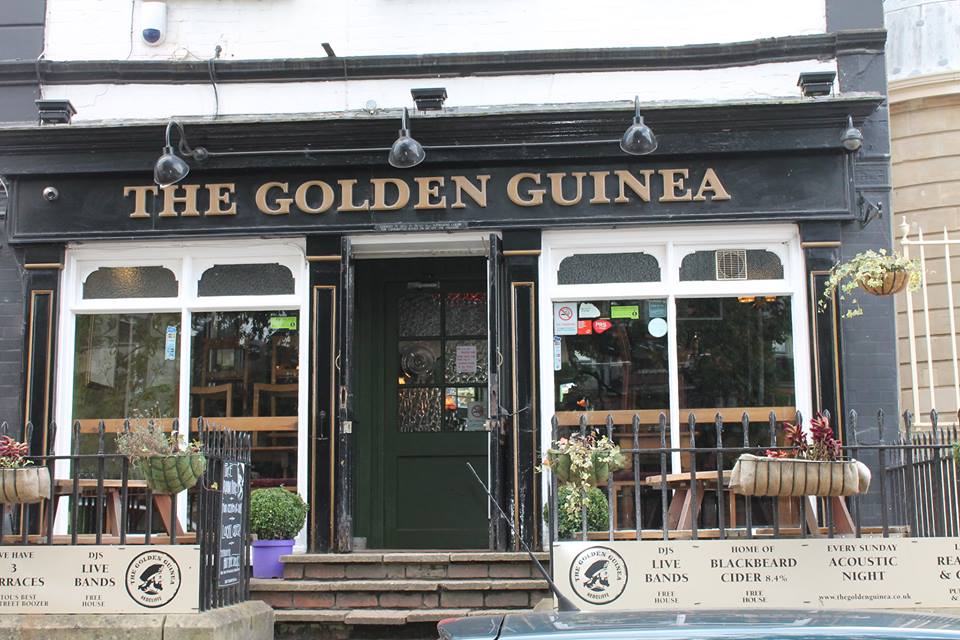
It's now an off-the-beaten-track corker of a pub, resplendent with a welcoming atmos, graffiti art and and a splendid terrace, but both the pub name and street have a particularly interesting provenance. Guinea Street was named after the well-known guinea golden coin, which itself was derived from a country on the West African gold coast, whilst the houses which lined the street during the Georgian period were occupied by ships officers and merchants, including one Cpt. Edmund Saunders who oversaw 20 slaving voyages. As was common at the time, a sugar house also operated on Lower Guinea Street to process sugar acquired from the plantations.
The Hatchet Inn
27 Frogmore St, Bristol, BS1 5NA. Tel. 0117 929 4118
It's long claimed, possibly rightfully, the title as the city's oldest pub as it has held a licence as far back as 1606. Originally, it was the home to such grisly, violent pastimes as bare-knuckle boxing, bloodsports, and cock and dog fighting. It was also purportedly at some period in the past a venue for ladies of ill repute. Even more intriguing for those with a particularly enthusiastic appetite for the macabre is the fact the front door and walls are allegedly lined with human skin. As is de riguer with buildings several hundred years old, there have been numerous postulations of it being haunted.
Seven Stars
1 Thomas Ln, Bristol BS1 6JG. Tel. 0117 927 2845
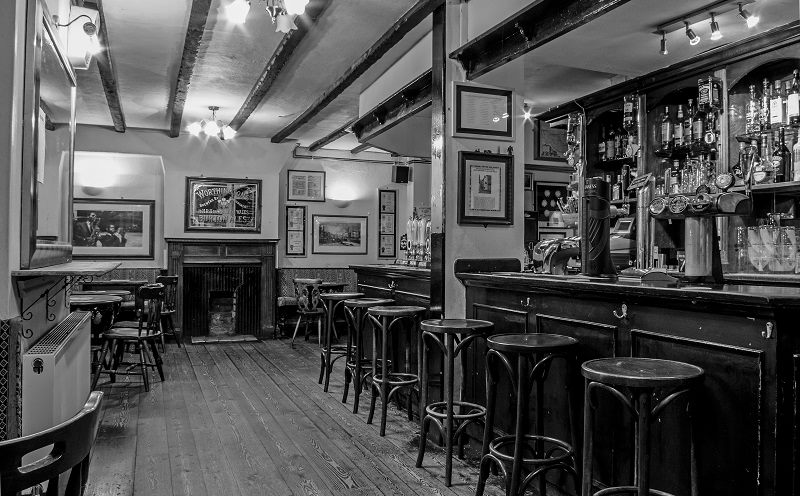
Today, a fine boozer for real ale aficionados and the perfect next door pit-stop for a pre-gig pint at The Fleece. Historically, however, its been serving the masses since the 1600s and was one of the key meeting points throughout the discussions for, and eventual abolition of, slavery thanks to anti-slavery campaigner Thomas Clarkson. Nowadays though, it's more Campaign for Real Ale (CAMRA) than campaigning against social injustice.
The Grain Barge
Hotwell Rd, Bristol, BS8. Tel. 0117 929 9347
The Grain Barge's original genesis was back in 1936 making journeys to and from Cardiff with a cargo of barley and wheat. In 2007, however, it was snapped up and renovated utilizing as much upcycled and reclaimed materials as they could find and now, in the hands of the Bristol Beer Factory, this three-floor boat is home to some of the best ales and incontrovertibly one of the finest riverside panoramas in the whole of Bristol.
The Ostrich Inn
Lower Guinea Street, Redcliffe BS1 6TJ. Tel. 0117 927 3774

Dating from around 1745, back in its days it was popular with a veritable smorgasbord of maritime types such as dockside workers, merchants and sailors. Of particular historical interest now is one of the walls at the back of the pub which has been partially demolished so you can see part of Redcliffe caves. Another Bristol boozer that's popular during the summertime due to plenty of outside seating, nosh that comes highly recommended and, of course, plentiful firkins of thirst-quenching beer.
The Hole in the Wall
2 Three Queens' Ln, Bristol, BS1 4QZ. Tel. 0117 926 5967
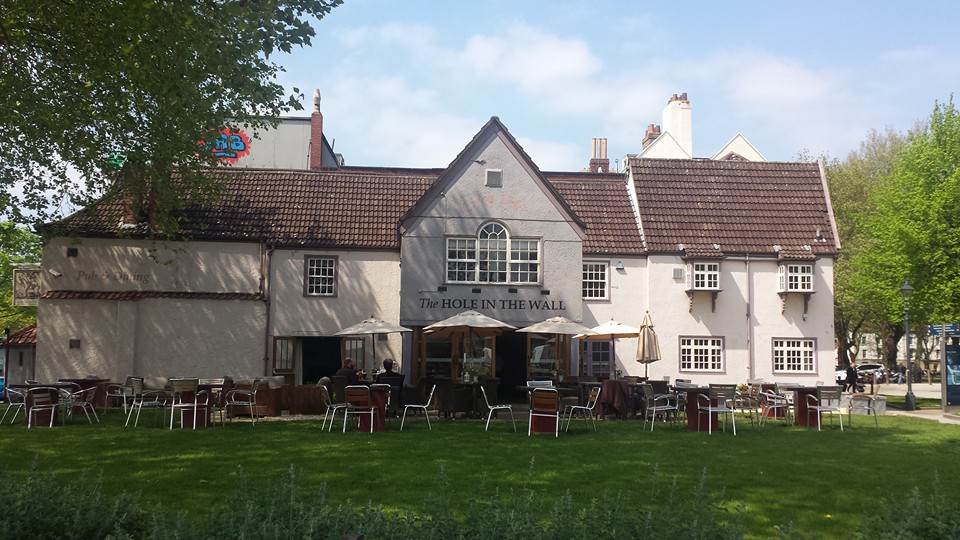
Originally called The Coach and Horses, this 18th century pub was immensely popular with sailors who, let's face it, have - past and present - always been partial to a refreshing libation or four. The origins of the name The Hole in the Wall stem from the simple fact that there was, and as far as we know still is, a spy hole on the side of the building. Skip to the present, and this pub/bar/restaurant is as popular as it's always been - now more stylish and chic than spit 'n sawdust - with plenty of outside seating for an hour or two of splendid al fresco supping.
The Stag and Hounds
74 Old Market St, Bristol BS2 0EJ. Tel. 01454 602207
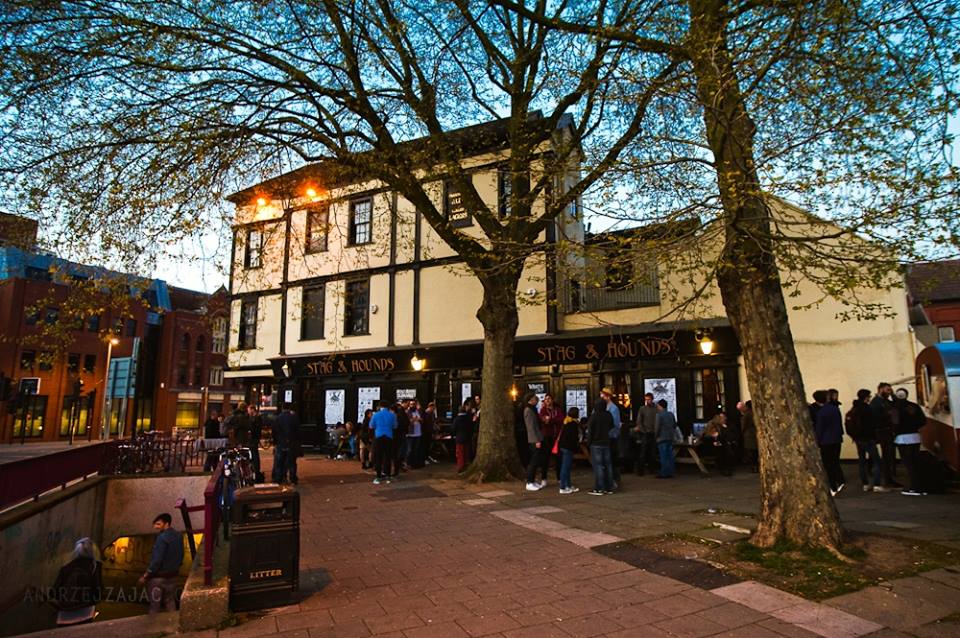
Having survived a wobbly, nebulous patch last year which saw it close for a brief period before reopening under new management, today it's one of the most popular pubs in the city - a totally unpretentious and reassuringly old school drinking den - and renowned for its live music and open mic nights. But in the past, this 18th century pub started life as a house before being converted in a drinking emporium and today the back of the pub is adorned with an old, original, still fully-functioning hand pump.
Can you think of any other Bristol drinking dens with an interesting history? Let us know via our Contact page!
Article by:

Jamie is a writer, blogger, journalist, critic, film fan, soundtrack nerd and all-round Bristolian good egg. He loves the music of Philip Glass, the art of Salvador Dali, the writings of Charles Bukowksi and Hunter S Thompson, the irreverence of Harry Hill, and the timeless, straw-chomping exuberance of The Wurzels. You can sometimes find him railing against a surging tide of passing cyclists, or gorging himself senseless on the Oriental delights of a Cosmos all-you-can-eat buffet.
